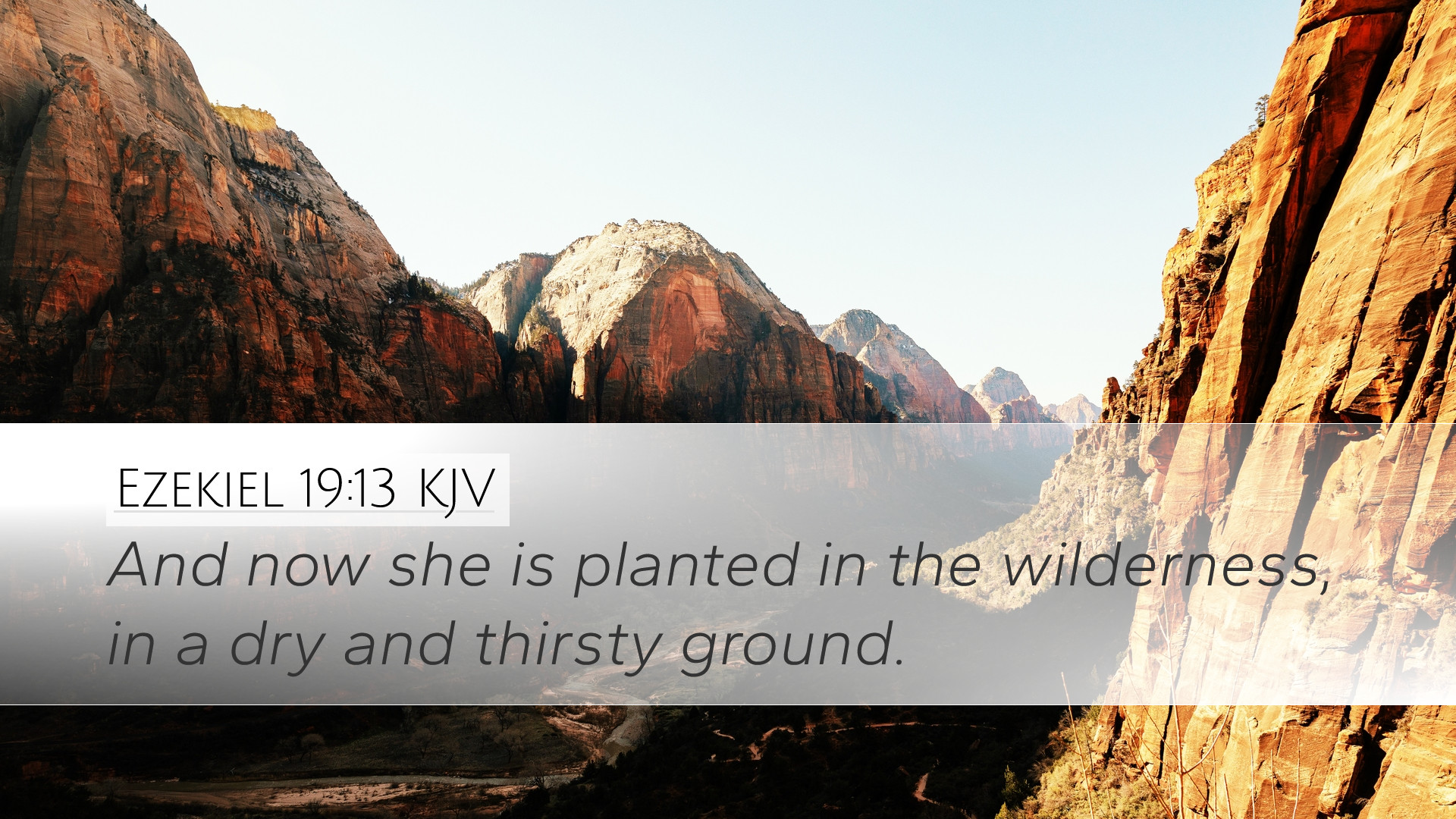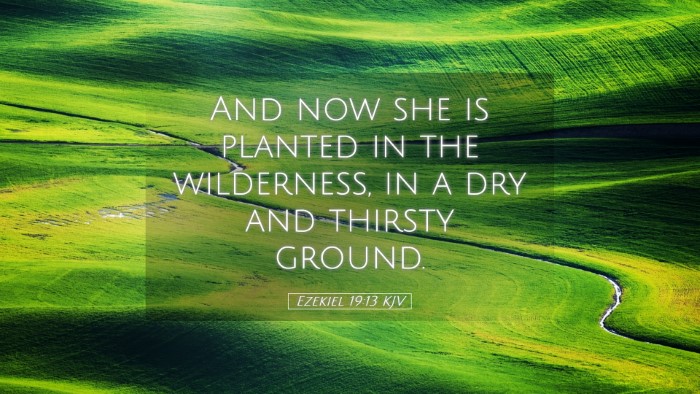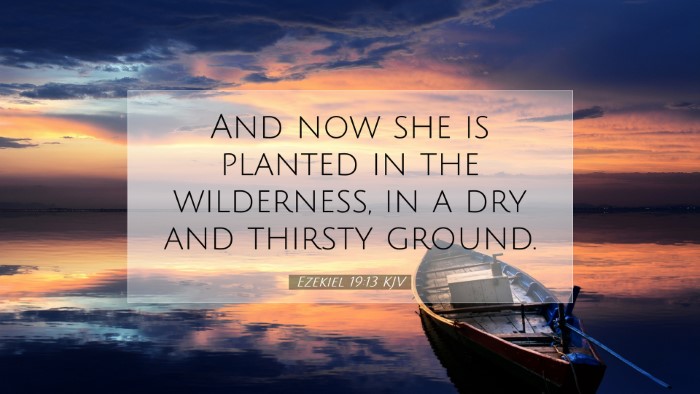Ezekiel 19:13 Commentary
Verse: "And now she is planted in the wilderness, in a dry and thirsty ground." (Ezekiel 19:13)
Introduction
The Book of Ezekiel, a major prophetic text in the Old Testament, reveals the profound sorrow over the fate of the people of Israel through intricate imagery and allegory. Ezekiel 19 is particularly poignant as it utilizes the metaphor of a lioness and her cubs to depict the downfall of Judah and its leaders. In verse 13, there is a shift in imagery that highlights themes of desolation and abandonment, reflecting God’s judgment and the consequences of turning away from Him.
Contextual Background
This chapter stands as a lamentation, focusing on the royal lineage and its demise. The lioness symbolizes either the Davidic line or the nation of Judah, which was once strong but has fallen into despair. This verse emphasizes the contrast between the past glory of Israel and its current state of bareness.
Insights from Public Domain Commentaries
Matthew Henry's Commentary
Matthew Henry notes that the use of "wilderness" and "dry and thirsty ground" serves to illustrate a state of barrenness not just physically but also spiritually. The lioness, which once roamed free and strong, is now depicted as planted in desolation. Henry emphasizes the consequences of Israel's infidelity and rebellion against God, which results in their abandonment from the source of life and sustenance – the Lord.
Albert Barnes' Notes on the Bible
Albert Barnes remarks on how the metaphor extends to the visible judgment faced by Israel. He states that the "wilderness" represents not only geographical desolation but a spiritual void where God’s presence is absent. Barnes points out that this symbol serves as a warning to the people of the severe consequences of their sins, emphasizing that in turning away from God, they have moved into an environment where survival is impossible.
Adam Clarke's Commentary
Adam Clarke expands this idea by noting that desolation can also represent a time of restoration, though it is not immediately perceived as such. He interprets the “dry and thirsty ground” as a place where spiritual renewal can begin, albeit from a state of need. It highlights the reality of suffering before redemption can occur, and Clarke suggests this serves as an important lesson for all believers: from barrenness, God can still bring forth life.
Theological Reflections
This verse raises significant theological themes regarding judgment, repentance, and hope. As scholars and theologians consider the implications of this imagery, several points must be noted:
- The Nature of God’s Judgment: God’s judgment is often depicted in forms that underscore abandonment when His people stray. The metaphor here serves to show that spiritual neglect leads to existential crisis.
- Call for Repentance: This verse acts as a clarion call for repentance, inviting readers to acknowledge the dry places in their lives and turn back to the source of life, represented by God.
- Hope amid Desolation: While the current circumstances seem grim, the overarching narrative of the Bible maintains that God can restore even those in the most barren situations.
Application for Modern Believers
For pastors, students, and theologians, the teaching found in Ezekiel 19:13 can serve several functions:
- Encouraging Reflection: This verse invites self-reflection on personal and communal fidelity to God.
- Preaching Themes of Repentance: It provides a basis for preaching about the importance of returning to God amidst desolation.
- Understanding Spiritual Warfare: Recognizing themes of abandonment helps believers understand their ongoing spiritual struggles and the need for divine intervention.
Conclusion
In summary, Ezekiel 19:13 serves as both a warning and a reminder of God’s sovereignty over His people. The imagery of desolation resonates deeply, urging contemporary readers to consider the realities of their faith journey. Each commentary sheds light on the multifaceted nature of God's dealings with humanity, imploring believers to remain rooted in Him, the ultimate source of life and restoration.


